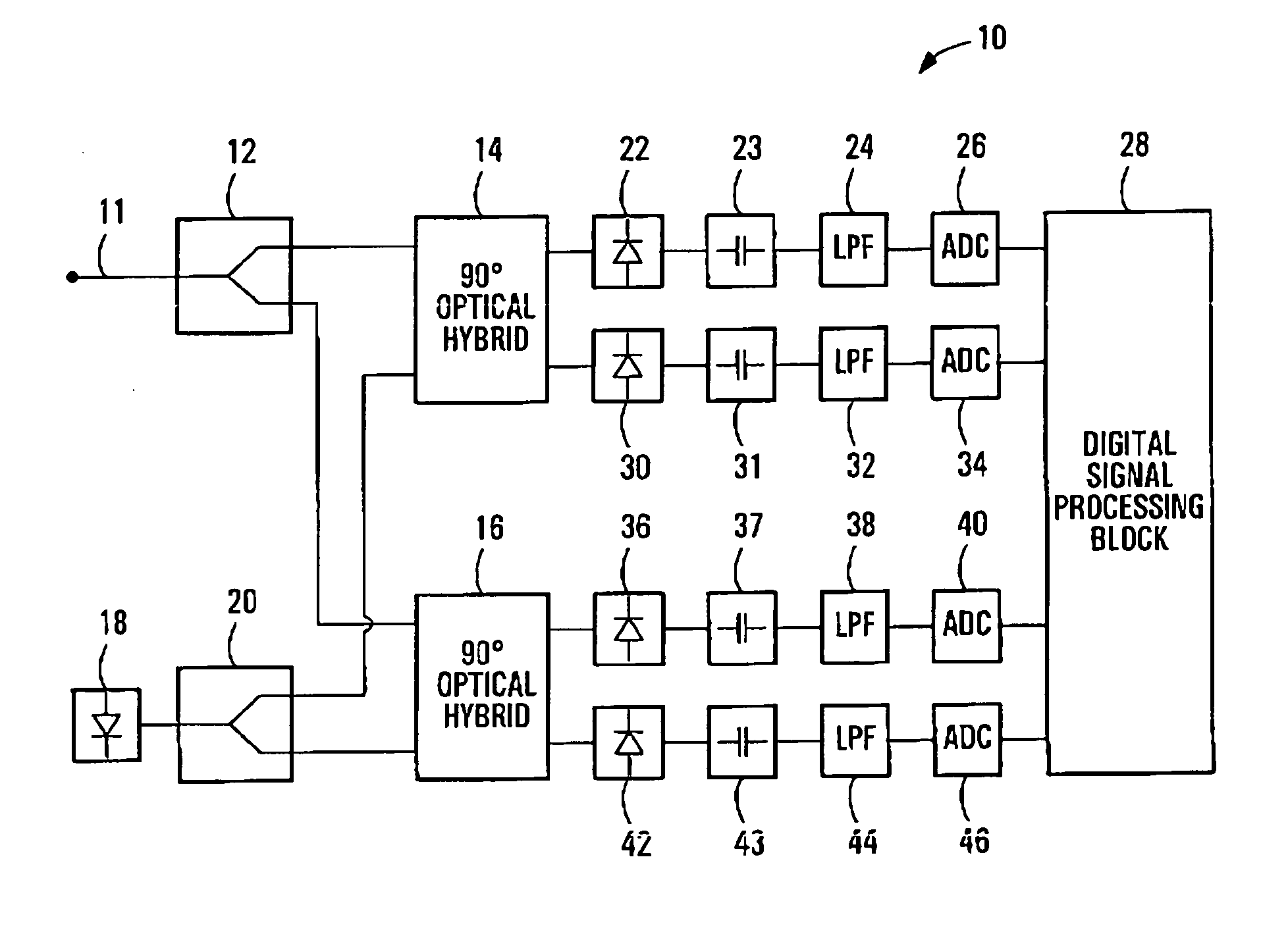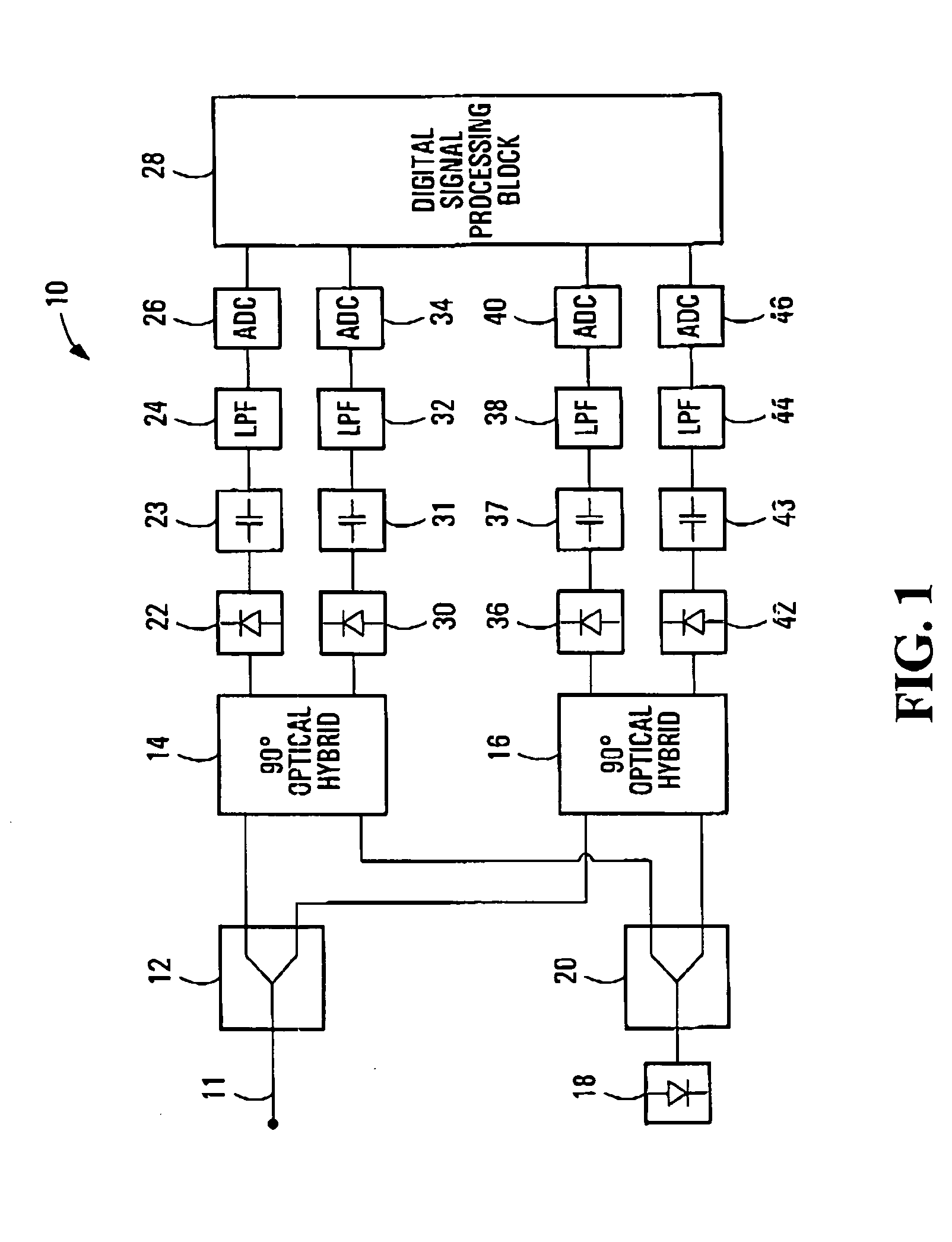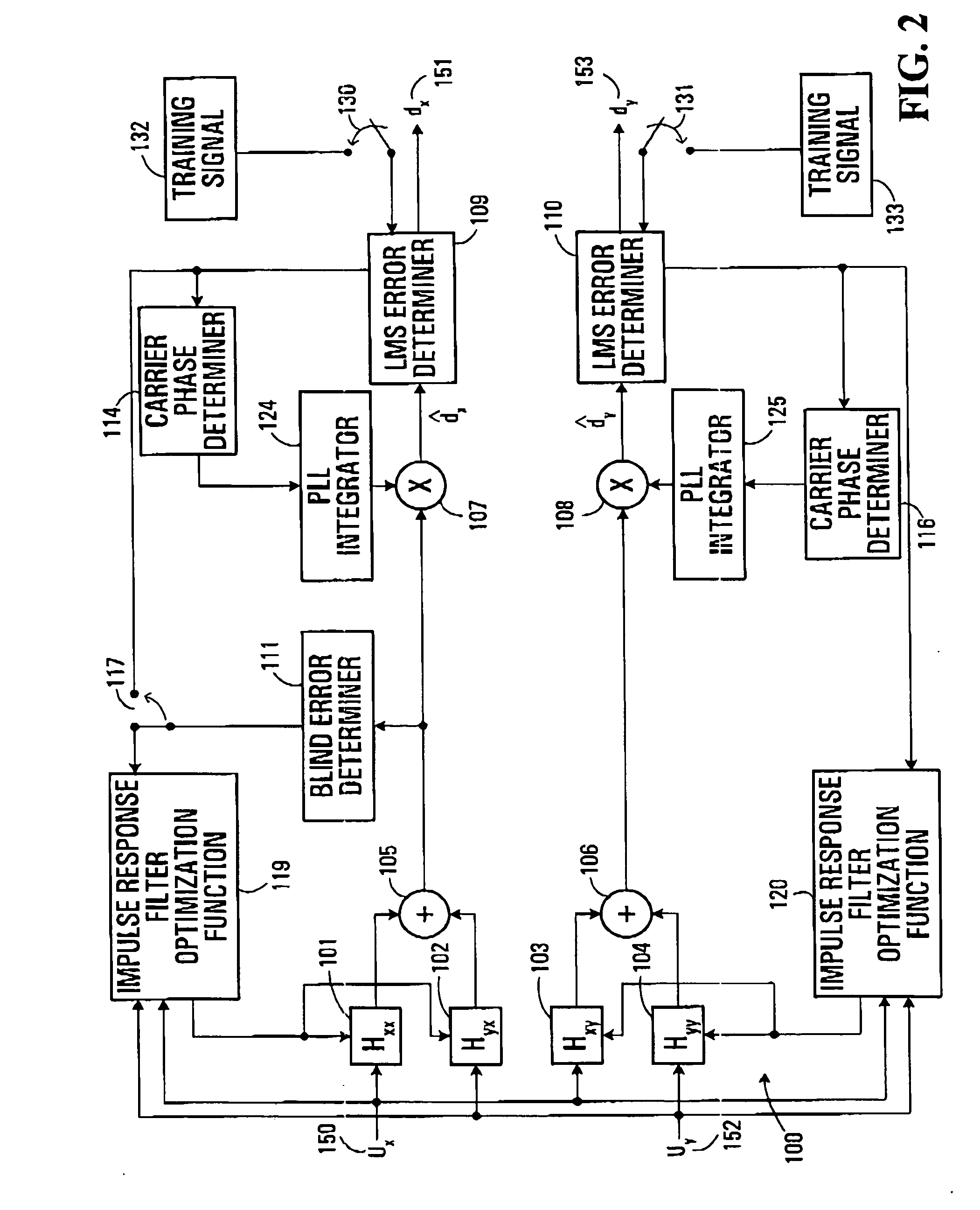Equalization strategy for dual-polarization optical transport system
a dual-polarization optical transport and equalization strategy technology, applied in the direction of pulse technique, amplitude demodulation, line-fault/interference reduction, etc., can solve the problems of quadrature carrier modulation, and the combination of polarization multiplexing and quadrature carrier modulation has not been done in commercial optical transport systems
- Summary
- Abstract
- Description
- Claims
- Application Information
AI Technical Summary
Benefits of technology
Problems solved by technology
Method used
Image
Examples
Embodiment Construction
[0020] A dual-polarization QPSK optical transport system consists of a transmitter, a transmission channel and a coherent receiver. The transmitter is responsible for generating a modulated optical signal, the transmission channel, which is typically a fiber optic transport link, conveys the modulated optical signal to the coherent receiver, and the coherent receiver is responsible for recovering the transmitted signal using a local oscillator (LO) with a frequency that is substantially matched to a transmitter laser.
[0021] The transmitted signal from the transmitter of the dual-polarization QPSK optical transport system is comprised of first and second polarization components, wherein the first and second polarization components each comprise first and second orthogonal signals that are a result of quadrature carrier modulation. Therefore the transmitted signal is comprised of a total of four separate signals. In the case of a 40 Gb / s dual-polarization QPSK optical transport syste...
PUM
 Login to View More
Login to View More Abstract
Description
Claims
Application Information
 Login to View More
Login to View More - R&D
- Intellectual Property
- Life Sciences
- Materials
- Tech Scout
- Unparalleled Data Quality
- Higher Quality Content
- 60% Fewer Hallucinations
Browse by: Latest US Patents, China's latest patents, Technical Efficacy Thesaurus, Application Domain, Technology Topic, Popular Technical Reports.
© 2025 PatSnap. All rights reserved.Legal|Privacy policy|Modern Slavery Act Transparency Statement|Sitemap|About US| Contact US: help@patsnap.com



